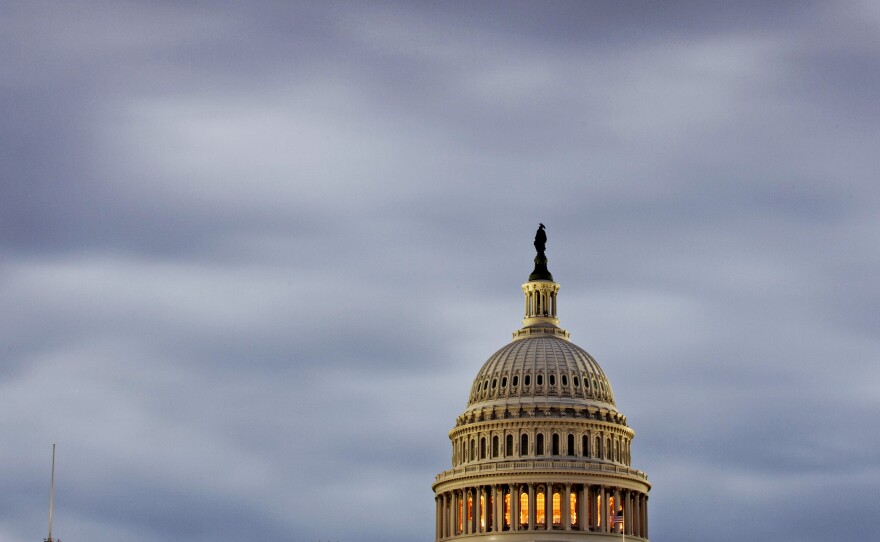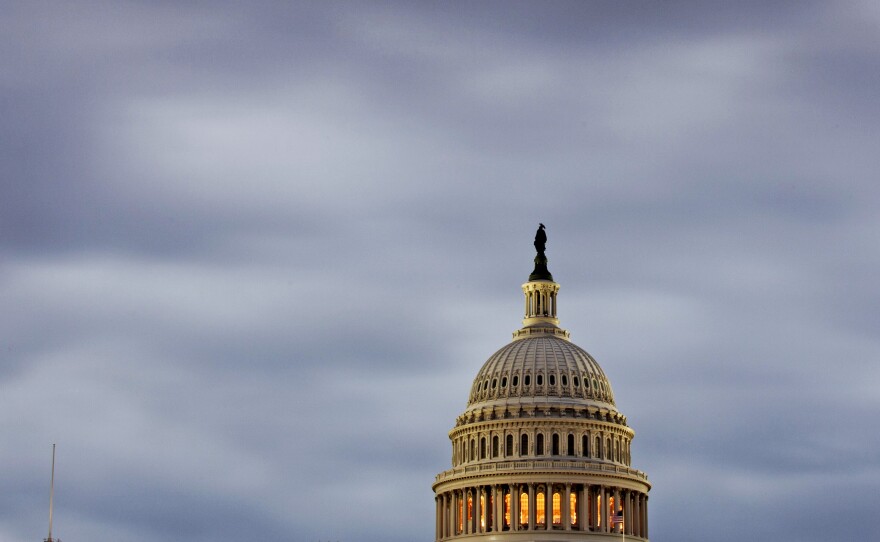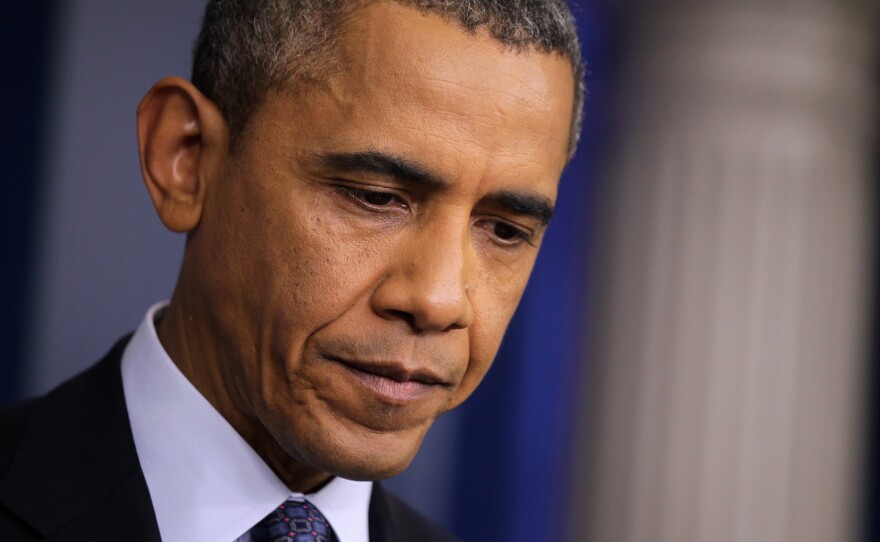

One thing is certain: None of the key players in the federal spending impasse is very happy right now.
President Obama is expected to meet with House Democrats on Wednesday and other caucuses in the coming days, The Associated Press reports, amid hope that a deal can be made soon.
Here's a rundown of Wednesday's Morning Edition coverage on the partial government shutdown, which is bumping up against the debate over raising the debt ceiling.
-- Correspondent Ari Shapirologs Tuesday's tit-for-tat between the president and House Speaker John Boehner:
"The day began with a phone call between House Speaker John Boehner and President Obama," Shapiro says. "Each side put out a statement describing the conversation. And for once the parties agreed -- the call changed no one's mind. A few hours later, Obama took to the White House briefing room and urged Republicans to end these crises."
-- Correspondent Scott Horsley says that while Washington bickers over the shutdown and a possible default, the rest of the world is just as nervous as we are -- maybe more so.
Economic historian and author Daniel Yergin tells Horsley: "The whole global economy, the whole system of payments and trade and investment -- it all rests upon confidence. And at the center of that confidence is the United States. The very big rock of Gibraltar. And if it can't play that role, everybody's worse off, including the United States."
-- Host Renee Montagne speaks with Idaho Rep. Raul Labrador, a member of the Tea Party caucus who outlines the conservative wing's thinking. Labrador says he personally "would be willing to give the president a one-year [continuing resolution] and a lot of conservatives are there with me -- which would be good for the president -- in exchange for a one-year delay in the implementation of Obamacare."
"We're not the ones who wanted to shut down the government; we need to remember that," he says. "When the shutdown occurred a week ago, it was the Democrats that said the Republicans wanted to shut down the government. There wasn't a single Republican in the House [who] wanted to shut down the government. We wanted to keep the government open."
-- Finally, host David Green spoke with Phil Glover, a corrections officer at the Johnstown Federal Prison in southwestern Pennsylvania and regional vice president for the Council of Prison Locals union, who says he and his colleagues are considered essential, but that as of Oct. 1, they won't be getting a paycheck.
"The next paycheck they get will be next week, and they will get a six-day paycheck for working two full weeks," Glover says.
Copyright 2013 NPR. To see more, visit www.npr.org.






